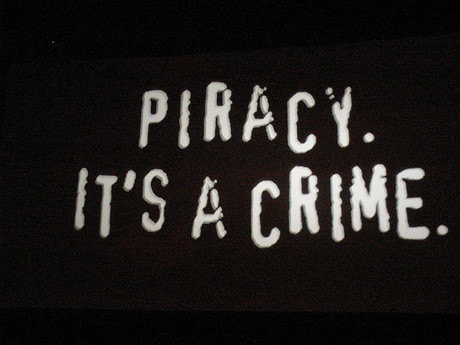Copyright battle heats up as code submitted to ACMA

Australia’s telecom industry has submitted its proposed code of practice for addressing piracy for registration by ACMA. But in the wake of a landmark ruling yesterday, the code is being criticised for failing to address “copyright trolls”.
Communications Alliance, the industry body for Australia’s telecom sector, has finalised its proposed Copyright Notice Scheme 2015.
The proposed code, which has been designed in consultation with ISPs, consumer representatives and rights holders, would create a scheme involving sending copyright notices to residential fixed internet users alleged to have infringed copyright online.
While the scheme does not include measures for imposing penalties on internet users, it does provide for a discovery process to allow ISPs help rights holders gather evidence for potential legal action against persistent infringers.
Communications Alliance has removed a proposed $25 fee to challenge an infringement notice in response to public comments. The body has also agreed to stronger consumer representation on the panel that will oversee the operation of the notice scheme.
Communications Alliance CEO John Stanton said the code has been developed in record time thanks to the cooperative efforts of rights holders, ISPs and consumer representatives.
“There are still some commercial details, including elements of the scheme funding arrangements, to be finalised and the finished product must meet the approval of the ACMA, but all stakeholders believe that the code can be an important tool toward the shared objective of reducing online copyright infringement in Australia,” he said.
If ACMA approves the code, its effectiveness will be independently evaluated 18 months after it comes into force.
Stanton said the operation of the code has not been affected by yesterday’s precedent-setting decision in the court case between rights owners of Dallas Buyers Club and ISP iiNet.
The lawsuit revolves around iiNet's decision to oppose a discovery request for the details of iiNet customers alleged to have illegally downloaded the film.
iiNet opposed the request because it was concerned that the rights holders were engaging in a practice known as “speculative invoicing”, or threatening to sue an alleged copyright infringer unless a settlement is paid. The copyright holders had already sent letters to US residents threatening a lawsuit unless a US$5000 ($6518) settlement is paid.
A federal court judge ordered ISPs including iiNet to disclose the identities of the 4726 Australian users alleged to have illegally downloaded the film. The rights holders were given the conditions that they must only use the information for the purpose of extracting compensation for the infringements and must submit a draft of any letter they intend to send to the court for approval.
Consumer group CHOICE has criticised the industry’s proposed copyright code for failing to protect consumers against the practice of speculative invoicing.
“The code sets up a system that will force ISPs to hand over customer details to rights holders, who will have free rein to use this information to launch court action or, as we’ve seen overseas, send threatening letters demanding thousands of dollars in ‘fines’,” said CHOICE Campaigns Manager Erin Turner.
“Just yesterday we saw the outcome of a legal process initiated by Dallas Buyers Club’s copyright owners... This was lengthy, and if Dallas Buyers Club LLC want to send bullying letters demanding payment, they’ll need to get the judge’s okay first. Under the code that was submitted today, this process will be eliminated and replaced with a rubber stamp. There will be no-one checking to make sure rights holders aren’t seeking to intimidate and bully Australians who may have done nothing wrong.”
She called for the code to be amended to exclude companies who send threatening letters from participating in the scheme and to impose limits on the total damages that can be sought by rights holders.
The Internet Society of Australia has meanwhile given “cautious support” to the proposed code, but called on the government to address a key motivator for piracy in Australia - price gouging by foreign media providers.
“The Internet Society believes program content should be available and easily accessible at reasonable prices comparable with similar markets overseas,” Internet Society CEO Laurie Patton said.
“We would like to see the government and the Opposition working together and insisting that the Transpacific Partnership (TPP) agreement, currently under consideration, includes provisions preventing content providers from price gouging.”
Why we need to redefine cybersecurity success to support CISOs
When Notifiable Data Breaches statistics are released we should look at the nature of the...
Is 2026 the year of identity? Just follow the money
What $40 billion in cyber acquisitions says about the future of identity security.
Proactive cybersecurity must lead innovation in Australia’s AI future
AI presents extraordinary opportunities for productivity, innovation and growth but it also...



